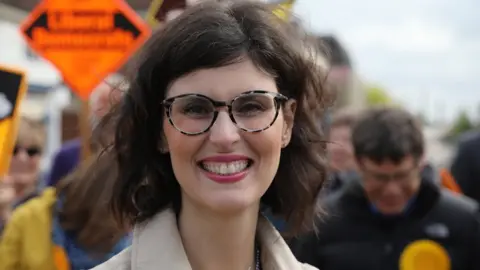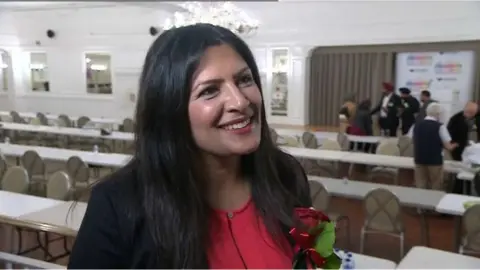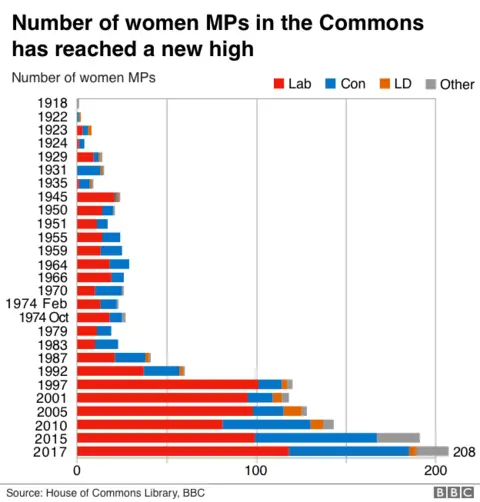Election 2017: Record number of female MPs
 Getty Images
Getty ImagesThere are now 208 women in the Commons, up from 191 in 2015, as a result of Thursday's general election. This takes female representation in the Commons to a new high.
Overall 32% of MPs are women but there are significant variations between parties. For Labour the figure is 45%, and 21% for the Conservatives.
This was the breakdown for each party and for the Commons as a whole:
As for the gender balance of the smaller parties at Westminster, the Greens' only MP is a woman, there is one woman among Plaid Cymru's four MPs, two women among Sinn Fein's seven MPs, and one MP among the DUP's block of 10 MPs.
'Progress stalled'
Sam Smethers, the chief executive of the Fawcett Society, which campaigns for women's rights, said: "The outcome of this election was a surprise to many pollsters, but it has seen more Labour women MPs elected. The Conservative Party has not seen a significant reduction in women MPs despite losing seats.
"But the real story is that progress has stalled. Getting more women in cannot be subject to party political fortunes. As we approach the centenary of women first getting to vote in general elections, we cannot wait for another nine elections to achieve equality.
"We agree with the recommendation of the cross-party Women and Equalities Select Committee that 45% of each party's candidates must be women. The time has come for a legally enforceable target to achieve the radical and sustainable change we need."
Among Labour's new intake was Preet Gill, the UK's first female Sikh MP.

Ms Gill secured 24,124 votes to hold the seat in Birmingham Edgbaston for Labour with a majority of 6,917.

For many decades after women were first legally allowed to stand for election, female MPs made up less than 5% of the total.
This reached double digits for the first time under Margaret Thatcher in 1987, but shot up as a consequence of Labour's 1997 landslide, when Tony Blair's party increased its number of female MPs by 173%.
